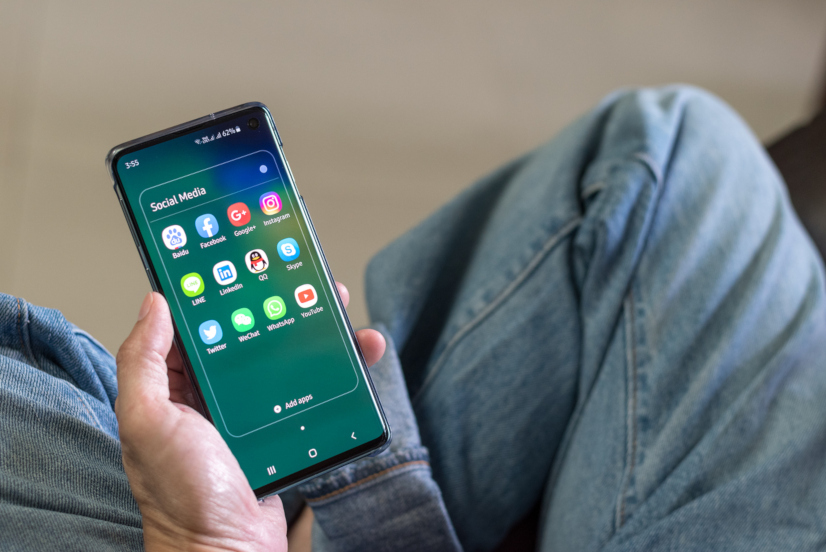
In today’s digital age, mobile apps have become an essential part of our daily lives. From social media to productivity tools and everything in between, there seems to be an app for everything. But have you ever wondered what sets apart the apps that you enjoy using the most? Chances are, they are native mobile apps. In fact, most of the apps running on your phone and the top apps on app stores are native apps. Despite the rise of hybrid apps in recent years, native apps continue to offer several advantages over hybrid apps. In this article, we will explore why native mobile apps are still the superior choice in 2023.
Better User Experience
One of the most significant advantages of native mobile apps over hybrid apps is their ability to provide a better user experience. Here are some of the reasons why:
- Native apps offer better performance and faster load times Native apps are built using platform-specific programming languages, frameworks, and APIs. As a result, they can take advantage of the full power of the device’s hardware and software capabilities. This allows native apps to offer faster load times, smoother animations, and more responsive user interfaces.
- Access to device hardware and features that hybrid apps can’t use Native apps have direct access to a device’s hardware, such as the camera, microphone, and GPS. This means that they can use device features to create more engaging and interactive user experiences that hybrid apps can’t match.
- Ability to customize the user interface for a platform-specific experience Native apps can be designed to match the specific platform’s user interface guidelines, resulting in a more polished and professional look and feel. Users are more likely to enjoy using an app that feels like it was designed specifically for their device.
Greater Security
In today’s world, security is more important than ever. With cyber threats becoming more sophisticated, businesses and organizations need to take every precaution to protect their data and their customers’ data. Native mobile apps offer several advantages over hybrid apps when it comes to security. Here are some of the reasons why:
- Native apps have access to more secure APIs and frameworks Native apps are developed using platform-specific programming languages and tools, which means they have access to more secure application programming interfaces (APIs) and frameworks. These APIs and frameworks are designed to be secure by default, making it more difficult for hackers to exploit vulnerabilities.
- Hybrid apps can have security vulnerabilities from their web-based components Hybrid apps are often built using web-based technologies like HTML, CSS, and JavaScript. While these technologies are powerful and flexible, they can also introduce security vulnerabilities that can be exploited by hackers.
- Native apps can be more easily secured with mobile device management (MDM) tools MDM tools allow businesses and organizations to manage the security of their mobile devices, including the apps that are installed on them. With native apps, MDM tools can be used to enforce policies that ensure the app is used securely.
Higher Performance
Mobile app performance is a critical factor in ensuring a positive user experience. Users expect apps to be fast and responsive, and if they are not, they may abandon them altogether. Here are some of the reasons why native mobile apps offer higher performance than hybrid apps:
- Native apps are optimized for their specific platform Native apps are developed using platform-specific programming languages and tools, allowing them to be optimized for their specific platform. This means that they can take advantage of the latest platform features and performance improvements, resulting in faster load times, smoother animations, and better overall performance.
- Hybrid apps can suffer from performance issues due to their web-based components Hybrid apps use web-based technologies like HTML, CSS, and JavaScript, which can introduce performance issues that native apps don’t have. Web-based components can also slow down the user interface, resulting in a less responsive and less enjoyable user experience.
- Making a good first impression is key with mobile apps Mobile app users have a low tolerance for slow or unresponsive apps. If an app takes too long to load or doesn’t respond quickly, users are likely to abandon it and move on to a competitor’s app. This makes it essential for mobile apps to offer high performance from the moment they are launched.
Better Platform Compatibility
Native mobile apps are designed to work seamlessly with their specific platform, making them compatible with a wide range of devices and operating systems. Here are some of the reasons why native apps offer better platform compatibility than hybrid apps:
- Native apps are optimized for specific platforms Native apps are developed using platform-specific programming languages and tools, which allows them to take advantage of platform-specific features and optimizations. This means that native apps can be optimized for the unique features of each platform, resulting in better performance and compatibility across a wide range of devices and operating systems.
- Connection with connectable devices and native features is easier with native programming languages Native apps have direct access to a device’s hardware and native features, making it easier to connect with other connectable devices and take advantage of platform-specific features. This is especially important for apps that need to connect with other devices, such as fitness trackers, smartwatches, or other IoT devices.
Conclusion
In conclusion, it is clear that native mobile apps are still the superior choice over hybrid mobile apps. They offer a better user experience, higher performance, greater security, and better platform compatibility. As a company that prioritizes delivering high-quality mobile solutions to our clients, Sidekick Interactive has chosen to only develop native mobile apps. We understand the importance of providing our clients’ users with the best possible experience and believe that native mobile apps are the best way to achieve this goal. By developing native apps, we can ensure that our apps are optimized for their specific platform, take advantage of the latest features, and provide a seamless and enjoyable experience for users. As the mobile app market continues to evolve, we will continue to prioritize the development of native mobile apps and stay ahead of the curve in delivering cutting-edge mobile solutions to our clients.


